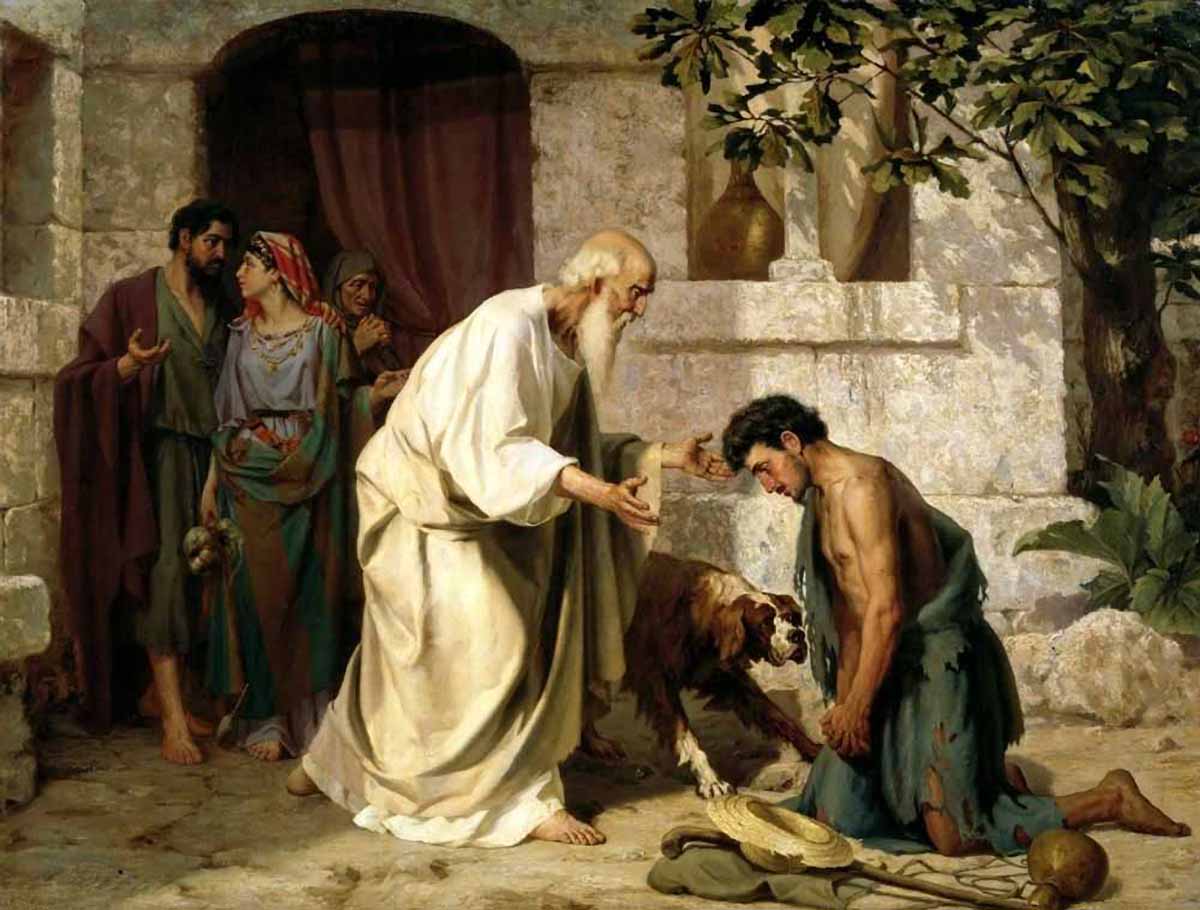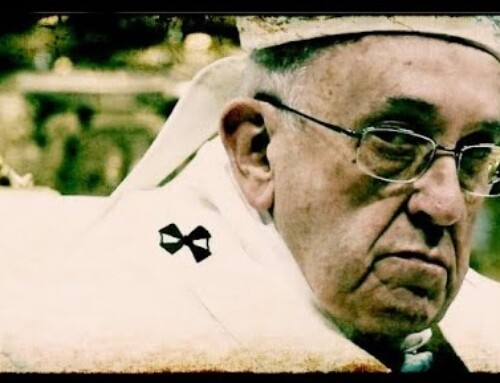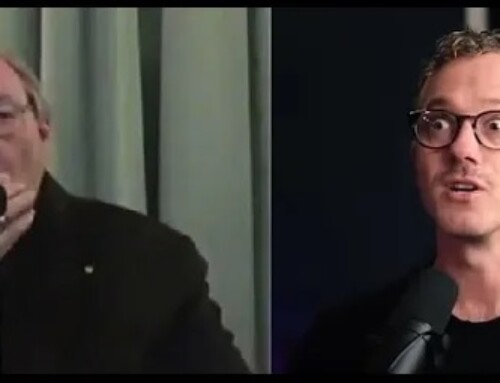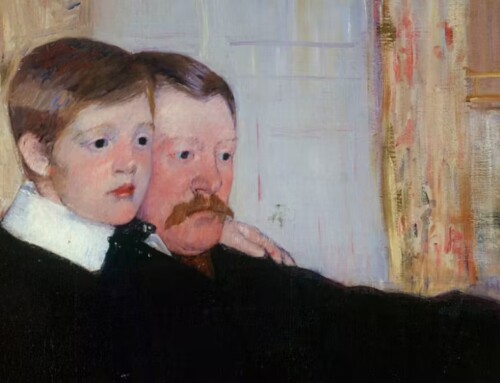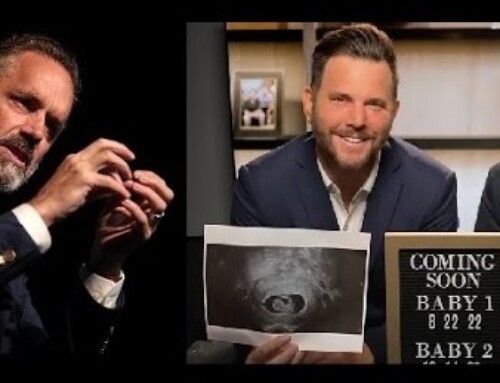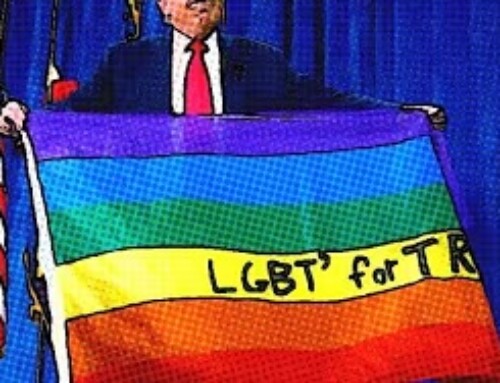(Above: “The Prodigal Son” by Nikolay Losev, late-19th Century.)
“The Holy Spirit is not an artist who draws the divine substance in us, as though he were alien to it. It is not in this way that he leads us to a resemblance with God — but rather, being God and proceeding from God, he himself marks the hearts of those who receive him as a seal upon wax. In this way, by the communication of his own life and resemblance, he restores nature according to the beauty of the divine model, and returns to man his resemblance with God.” ~ St. Cyril of Alexandria
“Restore us to thyself, O LORD, that we may be restored!” (Lam 5:21) – For the longest time, I prayed to God, asked Him, begged Him, to make me into someone new. I thought I was different; from my friends, even from my father. And, I didn’t want to be different. There was something about me, about what was going on inside – the thoughts in my head that I believed no one else could possibly see, were somehow visible to everyone else and they were giving me away. I was marked and the other boys at school knew it. Oftentimes, life was miserable, but I tried to pretend that I was just like them, when I knew differently. I struggled to deny what I felt, not because I thought it was wrong, but because I was afraid and lonely. And, I thought if those emotions went away, something would change in me and I would be like everyone else.
Later, I gave up. When, at age 18, instead of trying to fit in with everyone else, I sought other rejects in a place called San Francisco. There, I was no longer an oddity. For we shared a common experience; a sense that we didn’t belong, followed by long periods of persecution, and finally self-realization and escape. For the most part, we insisted that our misery, especially in the era of AIDS, was due to pervasive homophobia back at home and existing almost everywhere in the world – except here. Our happiness, we all concluded, began once we accepted our long hidden desires, accepted our sexuality, and accepted that we were “gay.” That moment of enlightenment would begin our own Renaissance after the suffering of the dark ages.
Yet, I didn’t realize it at the time, there was power in the word. Power in “gay.” Once we “came-out” and wrapped ourselves in the ceremonial baptismal cloth of the rainbow flag, we were aligning ourselves with an idea; with a way of viewing ourselves, the world, and God. And, what made it all the more significant is that we believed in the power of that word. It somewhat reminds me of the early exorcisms in the Name of Jesus as described in Holy Scripture. For there was immense power in the Name of Our Savior. But the authority to cast out demons was reserved for those who believed. For that reason, the seven sons of Sceva failed with their conjuring; yet another, the apostle John observed, could cast out devils in the name of Jesus. The difference was in their Faith. And, when we accepted our homosexuality, and accepted ourselves as “gay,” we believed that there was great significance in that act of self-determination; because, after years of denying our identity, we were now indelibly embracing our true selves. Today, this act of acceptance has taken on religious connotations.
In current “gay” Catholic discourse, there has been an overemphasis on the idea of “integration.” For example, Dignity USA maintains that homosexuals have ceaselessly “prayed and talked together about how we integrate our faith and our sexuality.” Vincent Pizzuto, a professor at the Jesuit-run University of San Francisco stated:
“…the ethics of homosexuality begins with an honest recognition, admission and integration of one’s God-given homosexual orientation, and results in a life lived in gratitude for, and loving expression of one’s sexuality.”
This rhetoric has also leached into what could be considered mainstream Catholic discourse; frequent LA Religious Education Congress speaker Arthur Fitzmaurice once said: “If the church hierarchy wants to witness the Spirit alive in LGBT people, it needs to listen to our stories of finding new life — and deeper relationship with God — as we strive to integrate our faith and sexuality.” Others have argued that even chastity is only possible once the person who experiences same-sex attraction has successfully “integrated” the homosexual orientation with their spirituality. The Diocese of San Jose went as far as to recommend to its priests that: “individuals do not choose and cannot change their sexual orientation but must understand it and integrate it into their life of faith and conscience.” Therefore, following this methodology, the only way in which a person who experiences same-sex attraction can ever hope for any sort of peace or happiness, is through the acceptance and integration of their homosexuality as an indelible and unchangeable component of their self. But exactly what are they integrating? Are they accepting their true self or some false image? And if a word can free one from the Prince of Lies, can another word, based on a lie, cause our eventual enslavement?
Catholic exorcists agree that there are four stages of attachment to the devil; they include: oppression, obsession, possession, and integration. While the Catechism itself stresses the importance of “integration” in terms of chastity, which “means the successful integration of sexuality within the person.” However, this can only authentically take place: “…when it is integrated into the relationship of one person to another, in the complete and lifelong mutual gift of a man and a woman.” Yet, others have twisted this teaching to include the “integration” of homosexuality. This is a dangerous inversion; one in which the simulation of the heterosexual marital act between two men becomes plausible, and healthy, and holy. With one priest arguing that the sexually “receptive” homosexual male is more open to Christ: “…nothing [is] more threatening to a male than being receptive. I mean, think about it sexually – maybe that’s why gay men are more ready for it.” This is reminiscent of the satanic “black mass” which creates a sick caricature of the Eucharist. In fact, occultist Aleister Crowley maintained that anal intercourse attracts spirits and demons. As St. James teaches: “Each person is tempted when he is lured and enticed by his own desire. Then desire when it has conceived gives birth to sin; and sin when it is full-grown brings forth death.” (James 1:14-15)
I believe that every human being has an instinctual need to encounter the transcendent. For the majority, this desire manifests itself in religion. In the homosexual milieu, the quest to finally touch God becomes intertwined with the sexual. Of the “coming out” experience, several “gay” theologians have commented on its supposed “sacramental” quality. Catholic priest and author Daniel A. Helminiak wrote: “coming out is a challenging, difficult, and painful process…coming out is a kind of conversion.” He added: “It is a noble and lofty act. In spiritual terms it is a saintly act.” This pseudo-spirituality is most explicit in the communal aspect of “gay” male sex where the holiest of holies resides in the darkened recesses of the “gay” bathhouse, at the lavatory glory-hole, or amongst the headless torsos on Grindr. We sought the incarnate word; and in “gay,” it solidified into an image through the form of the imagined body beautiful that was ever present, but just always out of reach.
The elusive and transitory nature of “gay” male sexuality goes on full-display every year at various worldwide “Pride” events, where gold-foil and tinsel-covered floats, heavily laden with near-naked men, weightlessly glide by. These spectacles are reenactments of solemn religious processions, but with an empty monstrance. The late “gay” Jesuit priest John J. McNeill described the often disconcerting and incongruous fusion of the body, sexuality, and Christianity in the “gay” world: “It has always been the prophetic role of lesbians and gay men to lead the Church and Western culture toward embracing embodiment, a sense of identity with the body and its sensuousness. We must let our ‘word become flesh!’”
In Catholic theology, by receiving the Body and Blood of Our Lord in the Holy Eucharist, we achieve “an intimate union with Christ Jesus.” In homosexuality, this uniting with the divine only takes place when in contact with the body of another. However, unlike the Body of Christ, we are unfulfilled. In homosexuality, a feverish hunger pervades: we become a wandering pilgrim, going from place to place and finding each successive shrine – empty. The “holy grail” in front of us, disappears and vanishes over and over again. Yet, we never give up. Because the “integration” that we assume has taken place, always seems to fall out of synch, or needs to be repeatedly reunified through contact with another man. Here, it is evident that the hold upon identity, let alone happiness, is forever hinged upon our relationship to others. Only, during the initial AIDS crisis, the ultimate tragedy became fully realized in the complete collapse of the visible manifestation of the divine in the decaying “gay” male body. The incarnate word failed them, and there was no resurrection.
The hope for restoration begins in humility. As in the case of the “Prodigal Son,” those who have been lured to sexual perversity and a false identity are oftentimes shocked back to their senses through some traumatic event: the sudden death of a lover or friend, contracting a sexually transmitted disease or some other serious illness, the often inescapable feeling of abandonment, the pervasiveness of depression, or the loss of dignity through the dehumanizing effects of extreme self-indulgence. At some point, we are so instinctively revolted by the horrors of hell that we turn towards God as the only other alternative. And, in Christ, we accidentally rediscover an all-forgiving Father who is willing to take us back.
After consciously declaring our identity, in a sense, revolting against biology and tradition, to admit that perhaps we had made a mistake, or that circumstance and pressures we didn’t understand played a part in our acceptance of homosexuality, requires a certain devastation of our own well-guarded reality. We must make a terrifying first step towards home; and in that initial movement is the understanding, sometimes infinitely slight, that our lives have gone out of control. Here, at this place of desperation, amongst the squalid beasts and the mud, we are open to the workings of the Holy Spirit, who, according to St. Cyril of Alexandria: “…restores nature according to the beauty of the divine model, and returns to man his resemblance with God.”
There are many famous artworks that depict “The Return of the Prodigal Son, but one of the more interesting examples is by Russian painter Nikolay Losev. Here, the rebellious headstrong son is stripped almost nude before his father. The boy, now grown into a man, takes the posture of a supplicant and a pilgrim, with his meager traveling possessions on the ground next to him: a walking stick, a cloth bag, a hat, and a water jug. He is crawling on his knees. According to Medieval practices, pilgrims often approached the holy shrines of the Scala Sancta, Canterbury, and Santiago de Compostela while on their knees – this is both a sign of humility and repentance. And thus, is how every man or woman who has fallen prey to the deceptions of the devil and the homosexual lie, should approach Our Lord Jesus Christ; not carrying the paper-thin rainbow-colored shield of “gay,” for to do so in that manner is not to beg for compassion and Mercy, but to make demands. Sadly, many cannot drop the protections which they have built up around themselves; being “gay,” makes sense; and thus causes the universe, and our place in it, to make sense. I have learned that many will die holding onto a lie. Because the Truth, and the pains of childhood, are too horrible to face – even for a moment. Consequently, “gay” male sexuality becomes increasingly enshrouded in darkness and desperation; providing a place in which to get lost in delusion. Fyodor Dostoyevsky wrote: “Above all, don’t lie to yourself. The man who lies to himself and listens to his own lie comes to a point that he cannot distinguish the truth within him, or around him, and so loses all respect for himself and for others.”
